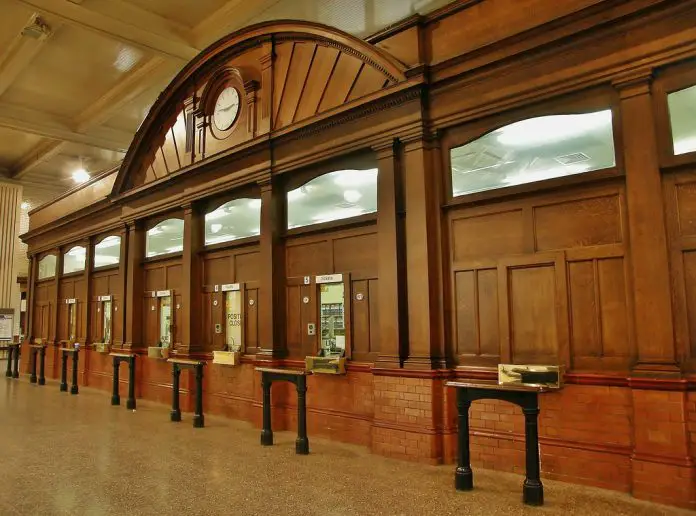Proposals have been announced that would see most rail ticket offices across the country closed
The move would see staff would move out of ticket offices and on station platforms, concourses and ticket halls, adopting new ‘customer help’ roles already in place in many parts of the railway
The Rail industry says bringing customer service roles up to date is long overdue, following a collapse in numbers of people using ticket offices
The rail delivery group say that the proposals would help bring station retailing up to date from the mid 90’s, when the rules on how to sell tickets were set and before the invention of the smartphone.
Back then, 82% of all tickets were sold at ticket offices, compared to just 12% on average today, a downward trend which accelerated during the pandemic.
Bringing staff out from offices would allow the railway to respond to that generational shift in customer behavior, in common with many other industries and organisations that have long since done so such as Transport for London, most airlines and many banks and supermarkets.
“It is being launched against the backdrop of long-running industrial action by rail unions RMT and ASLEF over changes necessary to bring the railway up to date and make it sustainable in the long term, with revenue continuing to languish at 30% below pre-pandemic levels. As RMT talks stalled due to their refusal to put a pay and jobs guarantee offer to its membership, train companies must now move ahead with essential reforms to bring the industry in line with the modern retailing, while maintaining valuable staff contact for customers. ” said the industry body
Jacqueline Starr, Rail Delivery Group chief executive, said:
“The ways our customers buy tickets has changed and it’s time for the railway to change with them. With just 12% of tickets being sold from ticket offices last year, and 99% of those transactions being available on TVMs or online, our proposals would mean more staff on hand on to give face to face help with a much wider range of support, from journey planning, to finding the right ticket and helping those with accessibility needs.
“Our commitment is that we will always treat our staff, who are hugely valued and integral to the experience our customers have on the railway, fairly, with support and extra training to move into new more engaging roles. We also understand that our customers have differing needs, which is why the industry widely sought the views of accessibility and passenger groups when creating these proposals, and will continue to through the consultation. We encourage those who wish to take part to go to their local train company website or visit Transport Focus or London Travelwatch.”
Responding to the announcement a spokesperson for Transport for the North said:
“We understand that the way people buy tickets is changing and that there needs to be reform. However, this should be done in a holistic way, considering the needs of all station users and local communities.
“We are concerned that the focus on ticket office staffing in isolation of wider investment (for example pay as you go ticketing) could lead to disadvantaging certain passengers and communities. We will be working with our partners on a robust response to the consultation using local evidence and knowledge.
“Patronage growth on the railways in the North is strong, albeit people are choosing to travel at different times for different purposes. Done correctly, we can ensure that reform supports growth and the needs of all passengers. But it must not be to the disadvantage of any station users, especially in regards to accessibility and safety.”







